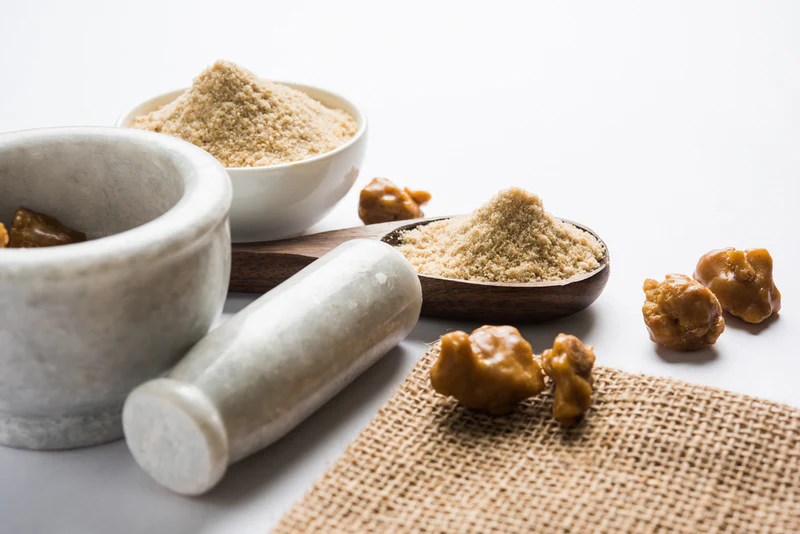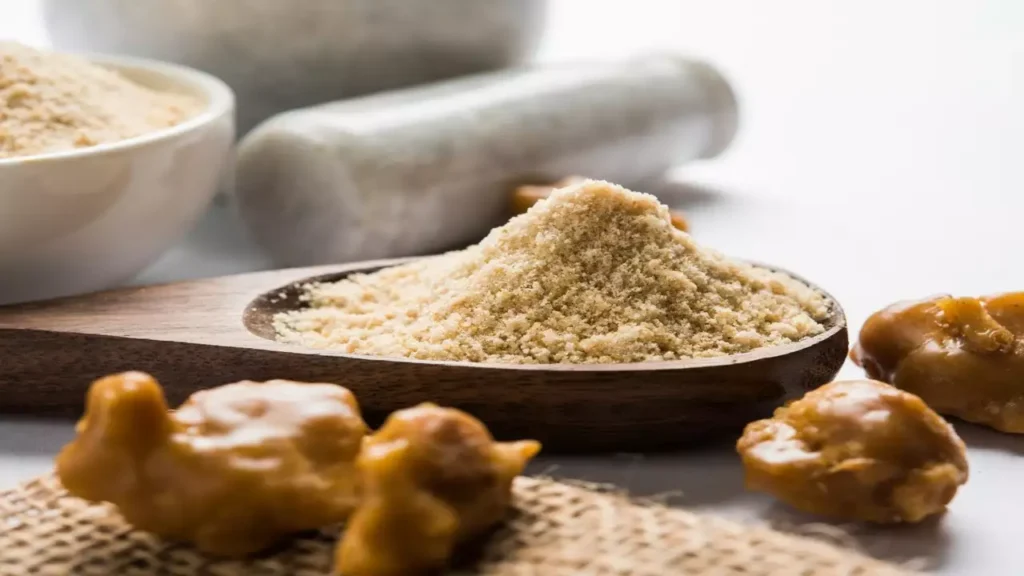How does hing support joint health in older adults?
Short Answer: Hing contains anti-inflammatory properties that help reduce joint pain and stiffness in older adults.
Long Answer:
- Hing, also known as asafoetida, is renowned for its potent anti-inflammatory properties. These properties are particularly beneficial for older adults who often experience joint pain and stiffness due to aging.
- The active compounds in hing, such as ferulic acid and coumarins, play a significant role in reducing inflammation around the joints. By inhibiting inflammatory pathways, these compounds help alleviate pain and improve joint mobility.
- Regular consumption of hing can lead to a noticeable reduction in symptoms of arthritis, such as pain, swelling, and stiffness. This makes hing an effective natural remedy for managing arthritis and other inflammatory joint conditions.
- Additionally, hing’s ability to improve blood circulation further enhances its effectiveness in reducing joint pain. Improved blood flow ensures that nutrients and oxygen reach the affected areas, promoting healing and reducing discomfort.
- Hing also contains certain antioxidants that help neutralize free radicals, which can cause cellular damage and contribute to inflammation. These antioxidants add another layer of protection and benefit for joint health.
- Including hing in the diet can be a practical and natural approach for older adults to maintain healthy joints and enhance their quality of life. Whether added to dishes or taken as a supplement, hing offers a simple yet effective solution for joint care.
Can hing help boost immunity in seniors?
Short Answer: Yes, hing has antimicrobial and antiviral properties that can help boost immunity in seniors.
Long Answer:
- Hing is packed with compounds that have potent antimicrobial and antiviral properties, making it a valuable addition to the diet of seniors who need a strong immune system to fight off infections.
- These compounds work by neutralizing harmful pathogens and preventing their proliferation in the body. By reducing the load of infectious agents, hing helps the immune system function more efficiently.
- Furthermore, hing can stimulate the production of white blood cells, which are crucial components of the immune response. An increase in white blood cells enhances the body’s ability to detect and eliminate foreign invaders.
- Another benefit of hing is its ability to reduce oxidative stress. By acting as an antioxidant, hing protects the body’s cells from damage caused by free radicals, which can compromise immune function.
- Hing also has a positive impact on gut health. A healthy gut is essential for a robust immune system, as a significant portion of the immune system is located in the gut. Hing’s digestive benefits contribute to a balanced gut microbiome, supporting overall immunity.
- By incorporating hing into their diet, seniors can benefit from its immune-boosting properties, helping them stay healthy and resilient against common illnesses and infections. Regular use of hing can be an easy and effective way to enhance immunity and maintain wellness.

What are the key compounds in hing that contribute to its health benefits?
Short Answer: Key compounds in hing include ferulic acid, coumarins, sulfur compounds, and volatile oils.
Long Answer:
- Ferulic Acid: This compound is known for its anti-inflammatory and antioxidant properties. Ferulic acid helps reduce inflammation in the body and protects cells from oxidative damage, contributing to overall health and longevity.
- Coumarins: Coumarins in hing have anti-inflammatory and anticoagulant effects. They help reduce inflammation and improve blood circulation, which is beneficial for joint health and cardiovascular function.
- Sulfur Compounds: These compounds possess strong antimicrobial and antiviral properties, making hing effective in combating infections and boosting the immune system.
- Volatile Oils: Hing contains various volatile oils that contribute to its digestive benefits. These oils stimulate the digestive system, helping alleviate symptoms like bloating and indigestion, and improving overall gut health.
- Additionally, hing contains tannins, which have astringent properties and can help reduce inflammation and protect tissues. Tannins also play a role in hing’s digestive benefits.
- These key compounds work synergistically to offer a wide range of health benefits, particularly for aging individuals who need support for joint health and immunity. Understanding these compounds can help users appreciate the value of incorporating hing into their daily routine.
How can I incorporate hing into my daily diet for maximum benefits?
Short Answer: Hing can be added to soups, stews, and curries, or used as a seasoning in various dishes.
Long Answer:
- Add a pinch of hing to soups and stews to enhance flavor and gain its health benefits. The unique taste of hing can add depth to these dishes while providing anti-inflammatory and digestive benefits.
- Use hing as a seasoning in curries, lentils, and vegetable dishes. Its ability to complement a variety of flavors makes it a versatile ingredient in savory recipes.
- Incorporate hing into salad dressings for an extra kick of flavor and nutrition. A small amount of hing can elevate the taste of dressings and sauces, making them more aromatic and beneficial.
- Make a soothing tea by boiling hing with water, honey, and lemon. This tea can provide digestive relief and support the immune system, especially during cold and flu season.
- Hing can also be used in pickles and chutneys, adding a unique flavor and health benefits to these traditional condiments. These can be enjoyed with meals to enhance both taste and nutritional value.
- Ensure you use hing in moderate amounts, as it has a strong flavor and can overpower dishes if used excessively. Starting with a small quantity and gradually increasing it can help you find the perfect balance for your taste.
- Exploring recipes from different cuisines that use hing can provide inspiration on how to incorporate this spice into your meals creatively. Experimenting with hing in different dishes can help you discover new flavors and health benefits.
Are there any potential side effects of using hing for joint health and immunity?
Short Answer: Potential side effects of hing include digestive issues, allergic reactions, and headaches if consumed in excess.
Long Answer:
- Digestive Issues: Excessive consumption of hing can lead to digestive discomfort, including gas, diarrhea, and stomach cramps. It is important to use hing in moderation to avoid these issues.
- Allergic Reactions: Some individuals may experience allergic reactions to hing, such as skin rashes, itching, and difficulty breathing. If you have a known allergy to similar spices, it is advisable to consult a healthcare professional before using hing.
- Headaches: In rare cases, hing can cause headaches, particularly in individuals sensitive to strong odors. If you experience headaches after consuming hing, it may be best to reduce or eliminate its use.
- It is advisable to start with small amounts and monitor your body’s response to hing. Gradually increasing the amount can help you gauge your tolerance and avoid adverse reactions.
- Consult a healthcare professional if you experience any adverse reactions after consuming hing. They can provide personalized advice and recommend the best course of action based on your health condition.
- In addition to these potential side effects, it is essential to be aware of the quality and source of hing. Using pure and high-quality hing can reduce the risk of adverse reactions and ensure that you receive its full health benefits.
- Finally, while hing offers numerous health benefits, it should be part of a balanced diet and healthy lifestyle. Relying solely on hing for joint health and immunity may not provide comprehensive results, so it is essential to incorporate other healthy practices as well.
Conclusion
Hing, with its potent anti-inflammatory, antimicrobial, and digestive properties, offers numerous health benefits for aging individuals. Incorporating hing into your diet can help support joint health and boost immunity. However, it is essential to use hing in moderation to avoid potential side effects. By understanding how hing can benefit your health and the best ways to incorporate it into your diet, you can enjoy its benefits while maintaining overall well-being. Regular use of hing as a dietary supplement can contribute significantly to the quality of life in older adults, providing both physical relief and enhanced immune resilience. Whether added to dishes or consumed as a tea, hing can be a valuable addition to the daily regimen of those looking to age gracefully and healthily.

